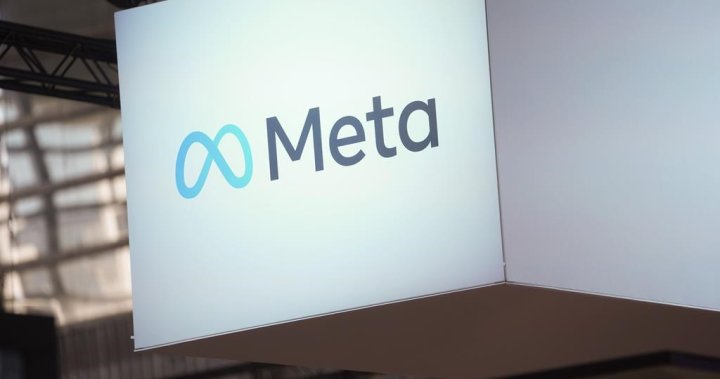One of the largest social media companies, Meta says it is open to talks with Ottawa on the Online Harms Act, while the pornography website Pornhub says it is reviewing the legislation.
The Online Harms Act is a sweeping piece of legislation introduced Monday that primarily tasks online platforms with a duty to protect users from “harmful content” and to bring in extra protections for children.
In the act, harmful content is defined across seven categories. These include content that sexually victimizes children or revictimizes a survivor, content used to bully children, content that could push a child to harm themselves, content that incites violence or terrorism, content that incites violence, content that foments hatred and intimate content shared without consent.
The act aims to cover social media platforms, live-streaming services and adult websites that offer user uploaded content.
“We support the federal government’s goal of helping young people have safe, positive experiences online and have spent more than a decade developing industry-leading tools and policies to protect them,” said Meta Canada’s head of public policy Rachel Curran in an emailed statement.
“We look forward to collaborating with lawmakers and industry peers on our long-standing priority to keep Canadians safe.”
Meta notably butted heads with the Liberal government over the Online News Act, which calls on large platforms to compensate media outlets for links hosted on their platforms.
The legislation only applies to Meta and Google, based on size, and Meta stopped allowing links to Canadian news on Facebook and Instagram as a result.

Prior to the cabinet meeting on Tuesday morning, Justice Minister Arif Virani said his office had not received formal response from any online platforms yet regarding the Online Harms Act.
“The idea is not to chase platforms out of Canada. We want platforms operating in Canada. We want them operating at a baseline standard of safety,” Virani said.
The email you need for the day’s
top news stories from Canada and around the world.
“We need to establish baseline standards to protect the safety of Canadian children and to protect vulnerable people from hatred.”
While regulations have not been drafted on the user threshold to be covered, officials named Facebook, Instagram, X, Twitch, YouTube and Pornhub as platforms they envisioned.
Global News has reached out to these platforms for comment.

In an emailed reply, Sarah Bain from Ethical Capital Partners, the firm that owns Pornhub, said that it is still reviewing the legislation and will have more to say in the coming days.
“Like many other stakeholders, we too support legislation that will protect children and youth online by ensuring there is accountability and transparency,” Bain wrote.
“To protect minors and user privacy, any legislation must be enforced against all platforms.”
She added the company supports legislation aimed at protecting children online by ensuring accountability and transparency, noting that in order to properly protect minors and user privacy any legislation must be enforced across all platforms.
An automatic reply from X’s press email said “busy now, please check back later.”
Young people most exposed to online harms
Meanwhile, a new report from Statistics Canada shows that young people are disproportionately likely to be victims of and encounter online hate and violence, as well as disinformation.
The report says that almost one-quarter of police reported cyber-related hate crime, 23 per cent, are aged 12-17 years. Men and boys are slightly more likely to be victims, at 53 per cent.
When it comes to exposure to content meant to incite hate or violence, 71 per cent of Canadians aged 15-24 reported seeing this type of content. The national average is 49 per cent.
At the same time, men and boys are six times as likely as women and girls of being accused of committing these crimes. Statistics Canada says that 35 per cent of people accused of cyber-related hate crimes are in that 12-17 cohort.

Meanwhile, young women, those aged 15-24 years, are the group most likely to be pressured into sharing or posting explicit images at 11 per cent. Statistics Canada cites the 2018 Survey of Safety in Public and Private Spaces for this data.
Originally, the Online Harms Act was expected to be focused much more on hate speech online than child protection, though it does contain provisions to increase the criminal penalties for hate speech.
Virani said that the change came after consulting with experts and regular Canadians on what they would like to see targeted in addition to his own experience.
“I’m a parent,” Virani said when asked about the focus switch on Tuesday. “I represent Canadians and there are Canadians that are concerned about their kids and their grandchildren across the country. And we reflect really deeply on this bill.”
© 2024 Global News, a division of Corus Entertainment Inc.




